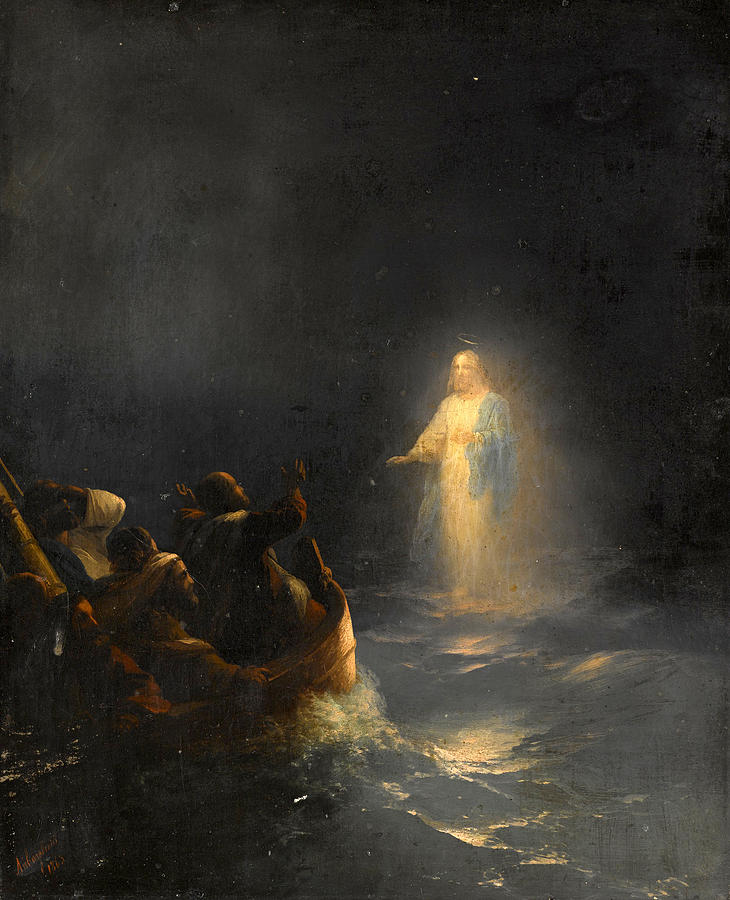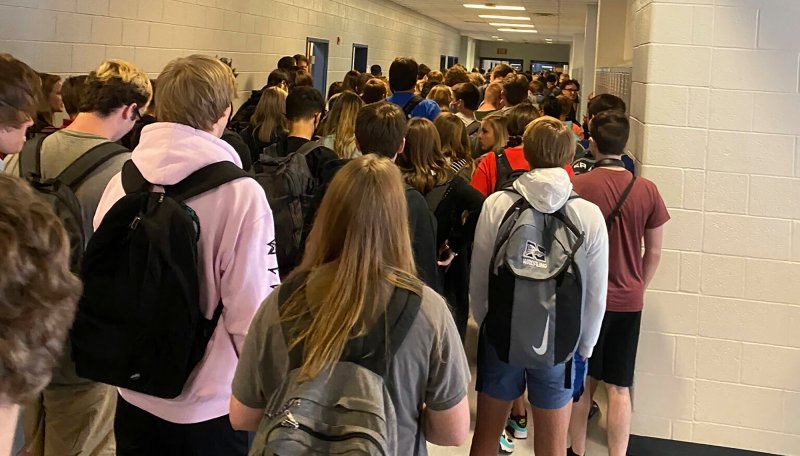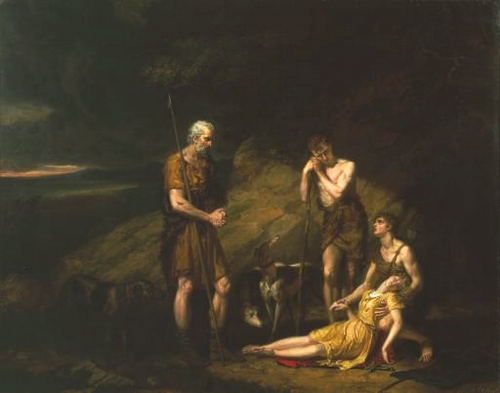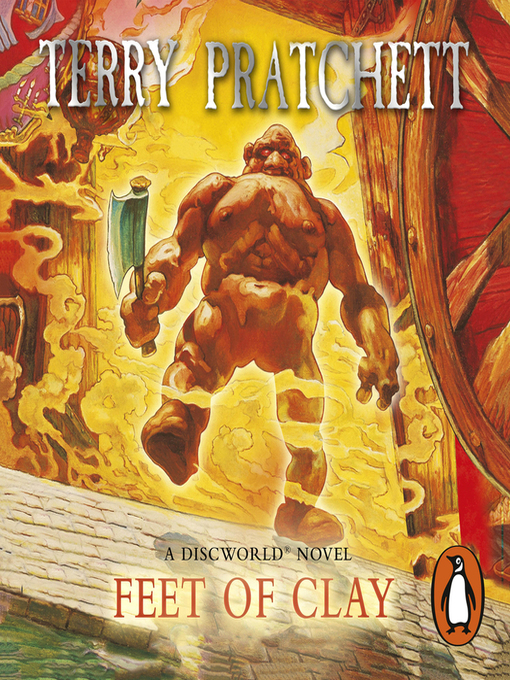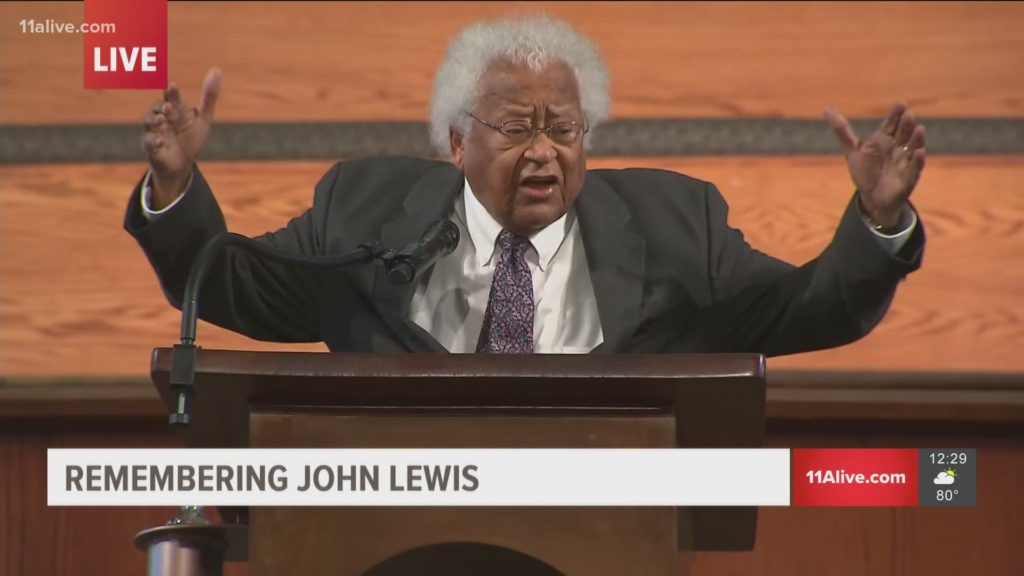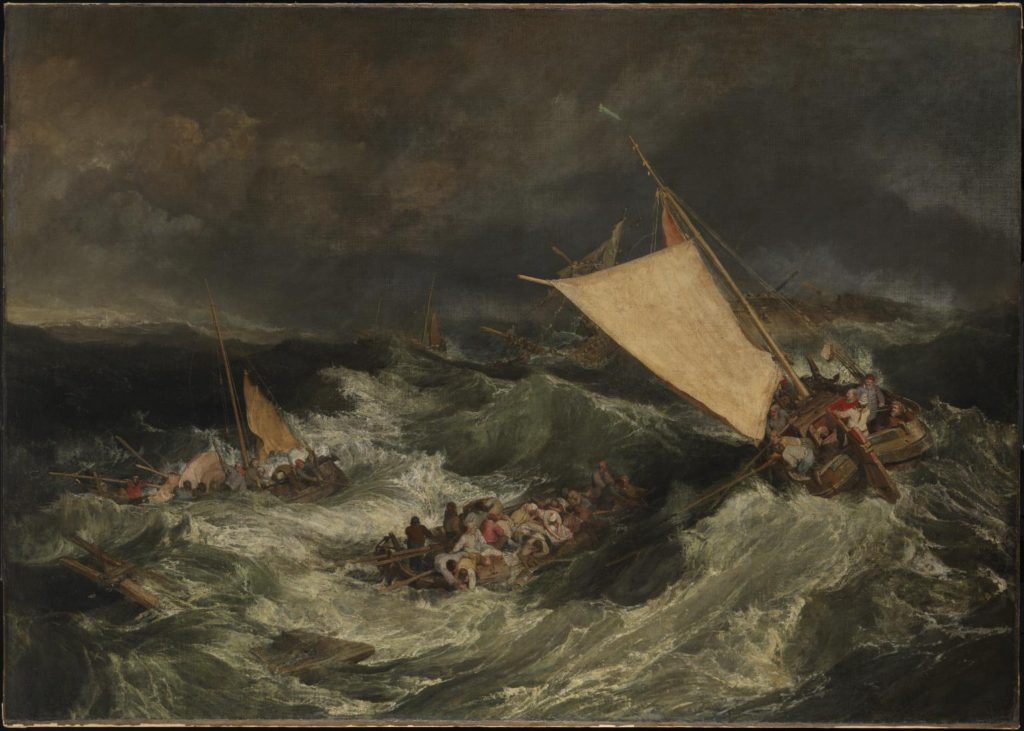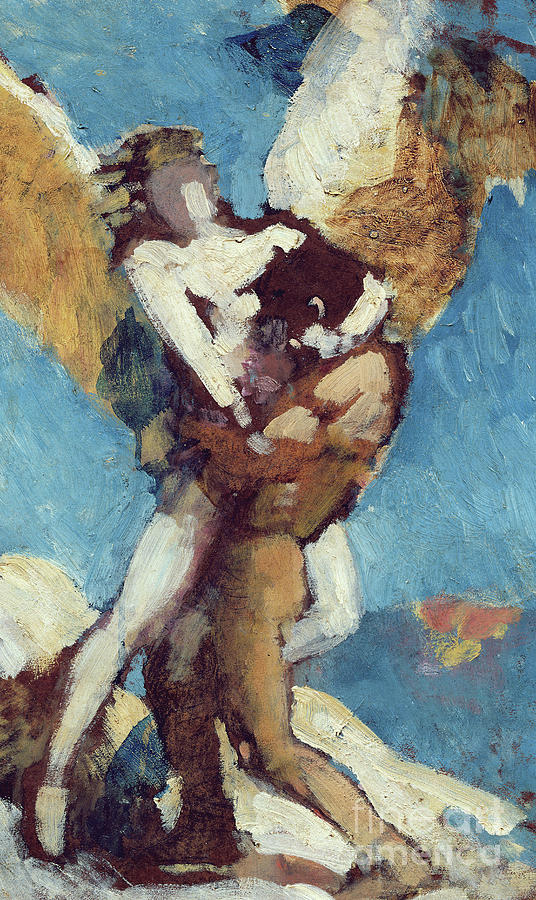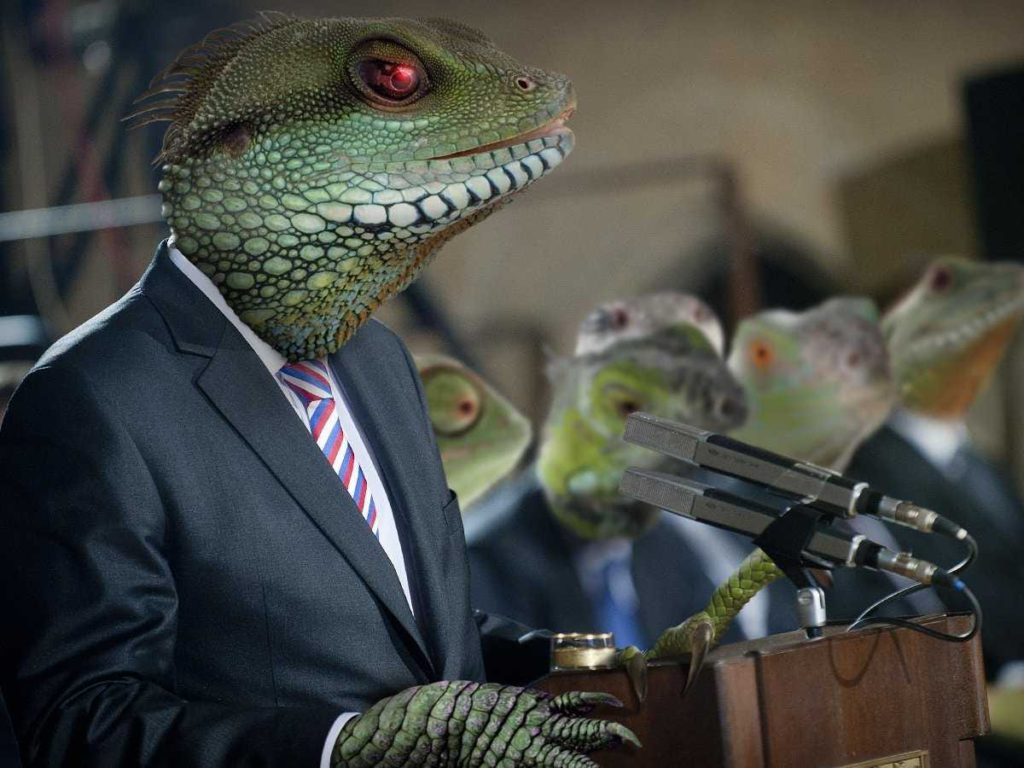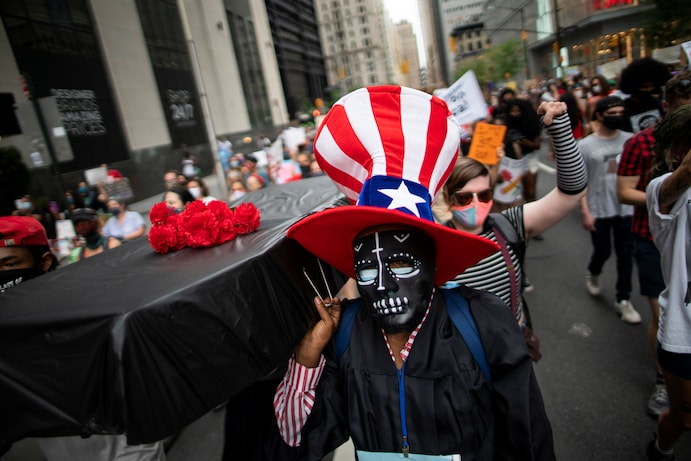
Monday
This a follow-up to Friday’s post about how the Trump administration and various governors are more interested in schools reopening than in insuring the health of teachers and other public sector workers. I noted there that Rudyard Kipling’s “Tommy” calls out the hypocrisy of those demanding noble sacrifices from people they routinely badmouth.
Speaking of noble sacrifice, an interesting debate recently broke out in the pages of the Atlantic when a nurse essentially demanded that teachers suck it up that way that she has been sucking it up. We’re in a war situation and must behave accordingly, Kristen McConnell writes. Her words and Sarah Jones’s vehement rebuttal give me the opportunity to share a John Housman poem about shame and service, this one involving an actual war.
To give you a sense of the debate, McConnell’s article is entitled, “I’m a Nurse in New York. Teachers Should Do Their Jobs, Just Like I Did.” Here’s a passage:
In those early days, I confessed my anxieties to an acquaintance, and he asked whether I could take a medical leave of absence. I could have taken a leave, and teachers in need can too. (And parents who want their children to stay home have that option, whether through homeschooling or continued remote learning.) But I said, “No, I can’t just chump out!” Chump wasn’t the right word—at the moment, I was almost hysterical, and it was hard for me to even articulate how I felt, called upon to do something frightening and hard that I viscerally did not want to do.
The military language people used when discussing COVID-19 in the spring seemed totally appropriate, and in a way that mentality got me through the peak: This was a war, and I was a soldier. It wasn’t my choice to serve, but it was my duty; I had skills and knowledge that were needed.
To which Sarah Jones, in an article entitled “Teachers Aren’t Sacrificial Lambs. No Essential Worker Is,” replies,
To press her case, McConnell embraces what she refers to as “military language.” The pandemic is a war, she writes, and teachers and nurses share an obligation to man the front lines. But she fundamentally mischaracterizes the nature of a pandemic and thrusts teachers — and essential workers as a category — into positions they were never meant to fill. In doing so, she gives voice to a perspective that various commentators feinted toward for weeks. “Can someone explain why teachers aren’t considered essential workers?” Bloomberg columnist Joe Nocera queried Twitter — the implication being, of course, that teachers ought to report to their job sites the way nurses and Amazon warehouse workers have done for months.
But the pandemic isn’t a war. When someone takes a job, they’re selling labor for profit, not enlisting to fight a deadly battle. Amazon workers, grocery-store cashiers, and fast-food cooks have all spent months protesting against that exact characterization of their pandemic-era lives. There have been walkouts, formal strikes, rallies, and whistle-blower cases — some involving nurses, members of McConnell’s own essential profession. In fact, nurses are among the loudest voices decrying a lack of working protective gear, unsanitary conditions, and even the inadequate storage of bodies in hospitals. Some paid for their boldness with their jobs. The story of essential work during the pandemic is one of exploitation and struggle, context McConnell ignores entirely in favor of urging teachers to fall into line. She doesn’t mention a single walkout or worker death and chooses instead to cast protesting teachers as victims of fear. The American Federation of Teachers, she writes, was wrong to threaten “safety strikes” over risky reopenings. “These threats run counter to the fact that, by and large, school districts are already fine-tuning social-distancing measures and mandating mask-wearing,” she asserts, citing no evidence whatsoever for her point.
Both writers agree on one point: The Trump administration has botched the pandemic response. The question is how to respond to the mess he has created.
Housman’s short lyric helps us sort through the tangle. It is told from the perspective of young soldiers who have died in World War I:
Here dead lie we because we did not choose
To live and shame the land from which we sprung.
Life, to be sure, is nothing much to lose,
but young men think it is, and we were young.
The soldiers fought not out of idealism but because they were ashamed not to. Their seeming stoic acceptance of death—“Life, to be sure, is nothing much to lose”—is contradicted by the searing understatement of the final line: “but young men think it is, and we were young.”
Translated, they’re saying, “We’re really, really upset that shame drove us into a situation where we would lose something as precious as our lives. Shame also prevents us from acknowledging our upset openly—after all, we’re supposed to care more about country than our lives—but we feel the loss deeply.” Unspoken but implied here is a sense of enormous waste, such as is articulated in a poem like Wilfred Owen’s “Strange Meeting”:
“Strange friend,” I said, “here is no cause to mourn.”
“None,” said the other, “save the undone years,
The hopelessness. Whatever hope is yours,
Was my life also; I went hunting wild
After the wildest beauty in the world,
Which lies not calm in eyes, or braided hair,
But mocks the steady running of the hour,
And if it grieves, grieves richlier than here.
For by my glee might many men have laughed,
And of my weeping something had been left,
Which must die now. I mean the truth untold,
The pity of war, the pity war distilled.
I am grateful beyond measure when health care professionals like McConnell step up and care for those who are sick. Yet several times during this pandemic I have recalled Bertolt Brecht’s passage from Galileo: “Unhappy is the land that needs heroes.” If the White House is calling upon nurses, teachers, and other essential workers to enter the fray like so many members of Tennyson’s Light Brigade, then the sacrificial lambs shouldn’t be fighting amongst themselves. All our ire should be directed toward those who, to use Tennyson’s word, have “blundered.”
Many teachers already have inclinations towards self-sacrifice—evidence ranges from spending personal funds on school supplies to sacrificing themselves when killers enter schools—which is why McConnell’s attempt to shame is pernicious. It’s taking advantage of the heightened sense of social responsibility that leads people to become teachers in the first place. Tim O’Brien in The Things They Carried shows the power of shame in The Things They Carried, and while it applies more to Housman’s soldiers than to educators, it’s useful in highlighting the voices we carry in our heads. In the episode, the narrator explains why, at the last moment, he chose not to escape to Canada to dodge the Vietnam draft:
I did try. It just wasn’t possible.
All those eyes on me—the town, the whole universe—and I couldn’t risk the embarrassment. It was as if there were an audience to my life, that swirl of faces along the river, and in my head I could hear people screaming at me. Traitor! they yelled. Turncoat! Pussy! I felt myself blush. I couldn’t tolerate it. I couldn’t endure the mockery, or the disgrace, or the patriotic ridicule. Even in my imagination, the shore just twenty yards away, I couldn’t make myself me brave. It had nothing to do with morality. Embarrassment, that’s all it was.
With teachers, it’s less embarrassment than a conviction that everything must be sacrificed for their students. The prospect of martyrdom can make one feel noble, just as it did for many of the young men who fought and died in World War I.
I’m thinking, for instance, of Rupert Brooke, who told us not to make too much of his death:
If I should die, think only this of me:
That there’s some corner of a foreign field
That is forever England.
And of Alan Seeger, who romantically embraced death:
I have a rendezvous with Death
At some disputed barricade,
When Spring comes back with rustling shade
And apple-blossoms fill the air—
And in the final line:
And I to my pledged word am true,
I shall not fail that rendezvous.
While some have lionized these two for their sacrifice, their deaths now seem (as they seem to Wilfred Owen) as meaningless and absurd.
Which is how the deaths of teachers and others in the school system will appear if we send them, unprepared and unprotected, into the teeth of the pandemic. America’s 160,000+ deaths already seem an intolerable waste. If we had done what other countries have done, tens of thousands of these individuals would still be alive.
Fortunately, teachers have access to other perspectives, as young men in 1914 did not. Not only to they have a clear view of administrative blundering, but they know that they will be risking, in addition to their own lives, the lives of students, school bus drivers, cafeteria workers, housekeeping staff, their own families, and the families of all these others. To charge into unsafe conditions when other options exist–such as waiting for the governing bodies to bring down infection rates–is not heroic but reckless. In fact, returning to school before it is safe takes pressure off the White House and GOP governors to get their act together.
One’s life is a lot to lose. To be shamed into risking it—well, shame on the shamers.
